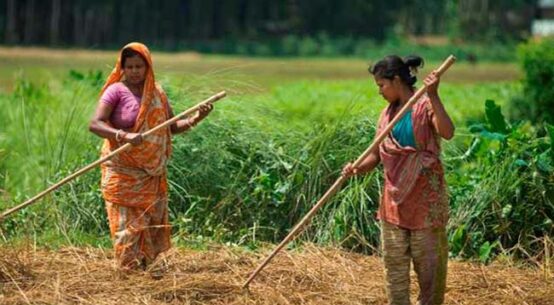
Seven years ago, a brutal campaign of violence, rape and terror against the Rohingya people ignited in Myanmar’s Rakhine State. Villages were burned to the ground, families were murdered, massive human rights violations were reported, and around 700,000 people – half of them children – fled their homes to seek refuge in Bangladesh.
Today, Bangladesh’s Cox’s Bazar hosts the largest refugee camp in the world with close to a million children, women and men living in makeshift settlements. The crisis is an abomination for humanity. And while the Government of Bangladesh and other strategic partners are supporting the response, the resources are severely strained and access to essential services is scarce.
As the global fund for education in emergencies and protracted crises within the United Nations, Education Cannot Wait (ECW), along with its strategic donor partners, government, UN agencies and civil society, has supported holistic education opportunities for both Rohingya and host community children in Bangladesh since November 2017. The more than US$50 million in funding, delivered through a consortium of partners – including government counterparts, PLAN International, Save the Children, UNESCO, UNHCR, UNICEF and other local partners – has reached over 325,000 girls and boys with quality education. Over the years, the programmes have provided learning materials for close to 190,000 children, financial support to over 1,700 teachers, and rehabilitated over 1,400 classrooms and temporary learning spaces.
In response to the COVID-19 pandemic, fires in the refugee camp and other pressing emergencies, the programming in Bangladesh was quickly adapted, and over 100,000 girls and boys were able to take part in remote education programmes during the height of the pandemic.
For refugee girls like Jannat, these investments mean nutritious school meals, integrated learning opportunities, catch-up classes, and security and solace in a world gone mad.
We must not forget Jannat and the hundreds of thousands of Rohingya girls like her that only yearn to learn in safety and freedom. Our investment in their education is an investment in peace, enlightenment and security across the region. Above all, it is an investment in the Rohingya people’s rights and other persecuted groups that face human rights abuses and attacks the world over.
Despite strong support from donors – as shown in this powerful joint statement by Japan, Norway, Sweden, Switzerland and the United States following their visit to the refugee camps in Cox’s Bazar in May of this year – the Rohingya crisis is fast-becoming a forgotten crisis.
The Rohingya Humanitarian Crisis Joint Response Plan 2024 calls for a total of US$852 million in funding, including US$68 million for education. To date, only US$287 million has been mobilized toward the plan. More concerning still, only 12.8% has been mobilized towards the education response, according to OCHA’s Financial Tracking Service. What we need to realize is that our investments in education are investments in health, food security and skills development. Taken together with other actions, it forms a cornerstone upon which all the other Sustainable Development Goals can be achieved.
As we commemorate seven years of persecution and attack, we must demand that perpetrators are held accountable for human rights violations, we must establish conditions conducive for a safe return of the Rohingya to their native lands, and we must enforce the rule of law and expect humanity for the people whose lives have been ripped apart by this brutal crisis.
Join ECW and our partners in urgently mobilizing additional resources to provide Rohingya girls and boys – and other children caught in emergencies and protracted crises worldwide – with the promise of a quality education. They deserve no less.
Yasmine Sherif is Executive Director Education Cannot Wait (ECW)

